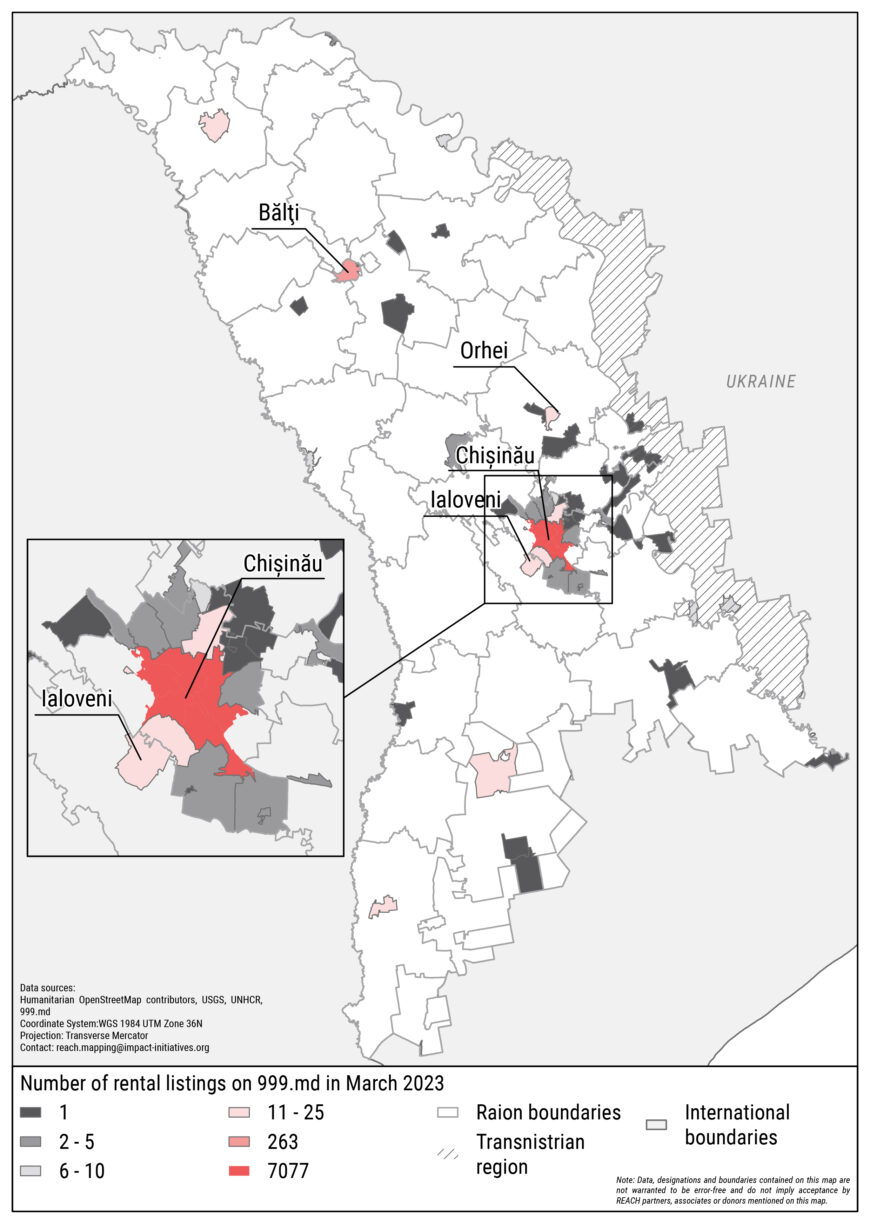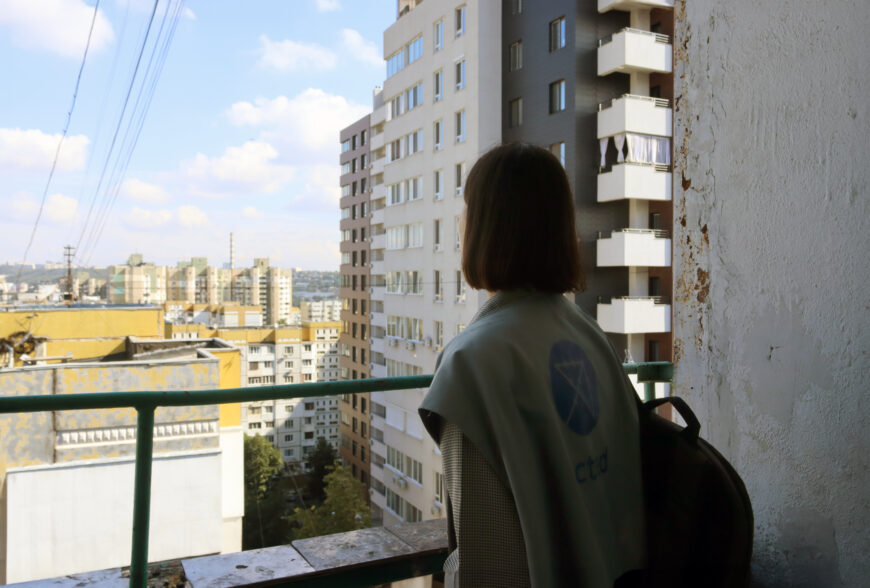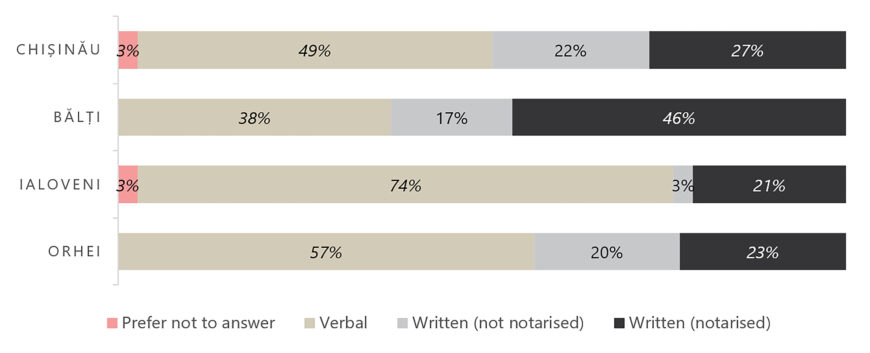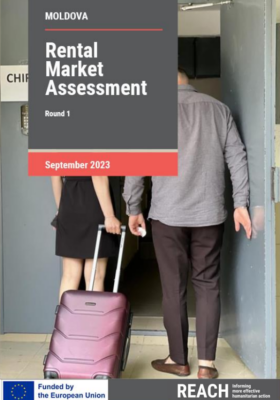In response to the acute need for adequate accommodation by Ukrainian refugees arriving and remaining in Moldova following the escalation of the war in neighbouring Ukraine, REACH – a joint initiative of IMPACT Initiatives, Acted and the United Nations Operational Satellite Applications Programme (UNOSAT) - conducted research to better understand the Moldovan rental market. Findings from the research are being used by implementing partners in supporting refugees to find and maintain adequate mid-term accommodation.
Over a year and a half has passed since the escalation of war in Ukraine in February 2022. As of October 2023, Europe has recorded 5.8 million Ukrainian refugees, with over 830,000 Ukrainian nationals seeking refuge in Moldova since the crisis began. Among them, 113,000 Ukrainians and 7,800 third-country nationals currently call Moldova home. In response to this significant influx, the Moldovan Government and the humanitarian community have made substantial efforts to meet the diverse needs of the refugee population, particularly in providing accommodation.
While Refugee Accommodation Centres (RACs) continue to offer temporary housing and basic assistance to the most vulnerable, the majority of refugees reside within Moldova’s host communities. To support these households, several rental assistance programmes, including Acted’s EU-funded Cash for Rent programme, aim to secure accommodation in the medium term, reflecting a shift in the refugee response towards more extended support.
Assessing the accomodation challenge
It is widely acknowledged that refugees need support in accessing adequate mid-term accommodation. However, limited information is available for them, whether about costs, availability, conditions for renting, or other crucial elements for tenants seeking houses. To bridge these information gaps and support the design of rental assistance programmes for refugees, REACH, in partnership with its PLACE consortium partners – Acted, IMPACT Initiatives, NRC and People in Need, conducted a comprehensive assessment of Moldova’s rental market dynamics and of the rental experiences of refugees from Ukraine. This assessment was made possible thanks to a funding from the European Union.
To achieve its research objective, REACH conducted interviews with refugee tenant households, rental service providers (RSPs), and other key informants with specialist knowledge of the rental market. Additionally, focus group discussions were conducted, and advertisements of rental accommodation on the rental advertisement site, were monitored to assess the availability and affordability of rental accommodations in Moldova. The assessment was focused on four distinct localities: the urban centres of Chișinău and Bălți, along with the semi-urban localities of Ialoveni and Orhei. Data collection occurred during March and April 2023.
Analysis of the data sheds light on the challenges faced by refugees seeking accommodation and highlights the main concerns that can be addressed through the efforts of implementing partners in the response.

Rental accommodation is not affordable for many refugees
Surveyed refugee households in Chișinău paid an average monthly rent of around €275, notably less than the €418 average listed on 999.md, signalling a preference for affordable housing among refugees. This, coupled with the initial exhaustion of rental properties post-conflict escalation, may have led to occasional tensions between host and refugee communities in urban areas vying for affordable housing. Nevertheless, relationships between these groups were described as mostly positive.
Financial barriers were a recurring issue for refugees, suggesting that renting had not been an affordable accommodation solution for many refugees in Moldova. The strain was particularly pronounced for unemployed refugees, and other vulnerable groups, including women, especially those with children, people with disabilities and older individuals unable to work. Moreover, financial burdens are likely to be heightened in winter as energy costs increase.
While cash assistance offered some relief, it wasn’t enough to guarantee stable housing. A concerning proportion of surveyed refugee households, nearly four out of five, expressed fear of eviction, making the discontinuation of cash assistance a major worry. This highlights the pivotal role of cash assistance in ensuring refugee housing security, as a reduction or end to this support could trigger evictions due to missed payments.
Many refugees have informal rental agreements to maintain flexibility and reduce costs

Many refugees opt for informal rental agreements for flexibility and cost savings. These agreements are typically favoured because, as per feedback from focus group discussions (FGDs) with refugee communities, formal rental contracts often pose difficulties due to rental service providers’ unwillingness. This issue previously hindered access to Temporary Protection status, which required a notarized formal rental agreement as proof of residence. However, as of September 2023, this document is no longer necessary (UNHCR). Formal agreements were more common in Chișinău and Bălți, while informal agreements prevailed in Ialoveni and Orhei.
Informal agreements benefit both rental service providers and refugee tenants. Providers can avoid state taxes, eliminate the need for a notary to draft contracts, and save time on official registration. For refugee tenants, these agreements offer flexibility in contract duration, potential cost savings – as some providers charge extra for formal agreements – and the ability to remain anonymous. However, while informal agreements provide flexibility and cost advantages, they can leave refugee tenants susceptible to sudden eviction or disputes, compromising their long-term housing stability and rights in the rental market.
Many landlords usually tell people that the price without a contract is lower and with a contract it is higher.

Discrimination faced by refugees in accessing rental accommodation
Though relationships between refugees and the host community were described as mostly positive, there were some reports of discrimination and stigmatisation against refugees. Discriminatory reluctance from rental service providers to lease to refugees has reportedly been a social obstacle for some refugees to accessing rental accommodation. This has been linked to fears of tenants damaging property, particularly if the household includes children, people with disabilities, or pets; concerns that refugees may leave without paying; and communication issues related to the language barrier. Roma refugees have reportedly faced additional discriminatory reluctance from RSPs to provide rental accommodation.
"Initially, refugees sought rent on their own, but when landlords found out that people were from Ukraine, they refused outright or charged an inflated price
The assessment findings highlight the need for continued support to refugees to secure adequate mid-term accommodation in the rental market in Moldova. This is particularly so for more vulnerable groups of refugees such as women with children, persons with disabilities, and older refugees.
REACH will continue to monitor the dynamics of the rental market for refugees in Moldova in the second round of the assessment, which is being conducted from October 2023 to January 2024. To address the additional evidence gaps identified in the first round of the assessment, REACH will incorporate a dedicated focus on the challenges faced and the needs of refugees with mobility-related disabilities. In light of the implementation of the Temporary Protection status for Ukrainian refugees since March 2023, the second round is also expected to produce findings on any changes to rental market dynamics that the measure may have brought about.
Read full market assessment
Rental Market Assessment Round One - REACH
Download